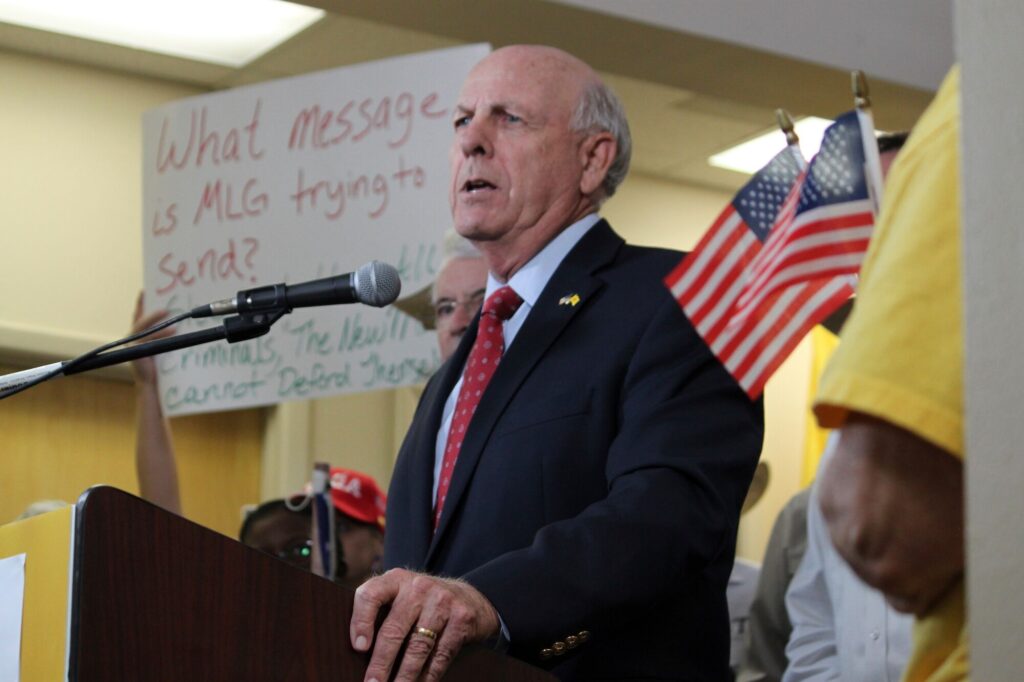U.S. Rep. Mike Coffman raises concerns with VA ‘drug centric’ culture for veterans
U.S. Rep. Mike Coffman, a Republican, is working on moving the Department of Veterans Affairs away from prescribing “strong” psychotherapeutic medications to veterans.
He said the department uses the medications as its “primary method of treating” veterans with mental health conditions, and that has Coffman concerned.
“An over reliance on prescription medication may in some instances leave veterans in a more vulnerable state,” Coffman wrote Monday to Gene Dodaro, the comptroller general of the United States within the Government Accountability Office.
Coffman highlighted post-traumatic stress disorder as an issue. He expressed concerns around cutting off patients suddenly from medications and addictions that cause “unpredictable or dangerous forms of behavior.”
“Given these concerns, I write to request that the Government Accountability Office review the VA’s psychoactive drug-centric standard of mental health care for our veterans,” Coffman wrote.
“Many veterans return from service with PTSD, often referred to as one of the invisible wounds of war,” the letter continued. “Buttressing my concerns are a combination of data from the VA’s 2016 suicide data report and numerous cases that have come to my attention, including two in particular from the state of Colorado.”
Coffman pointed to a veteran from Broomfield, Cory Hixson, who suffers from conditions related to his second tour in Iraq. Hixson fled his family and home. Authorities found him in Erie in a garage looking for food and clothing. His wife reported that the VA repeatedly changed Hixson’s medications.
In the second example Coffman gave from Colorado, combat veteran Noah Harter, from Colorado Springs, suffered from PTSD and other issues after two deployments in Iraq and Afghanistan. Coffman cites reports stating that he was prescribed “powerful medications” that may have contributed to Harter dying by suicide.
The proportion of Veterans Health Administration users with mental health conditions or substance use disorders has increased from about 27 percent in 2001 to more than 40 percent in 2014, according to statistics cited in Coffman’s letter.
He called for careful monitoring and raised a series of questions regarding the VA’s use of non-pharmacological therapy, and psychotherapeutic drug and opioid procedures. Specifically, Coffman called to attention concerns around veterans being prescribed stimulants, benzodiazepines, and opioids – in some cases together. The congressman also raised questions on suicide rates.
“Although I recognize that in many cases the use of psychoactive medications is appropriate for veterans with mental health conditions, I believe that their use is not necessarily the best first resort and that in many instances the alternatives of non-medicated treatment or cognitive-behavioral therapy may prove a preferred option,” Coffman wrote.












